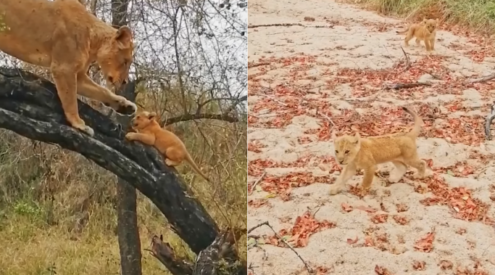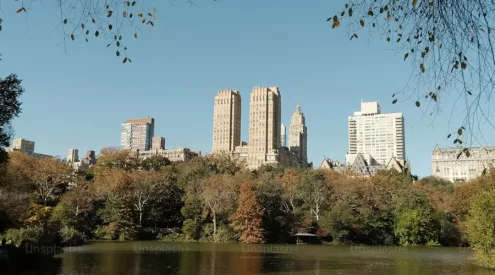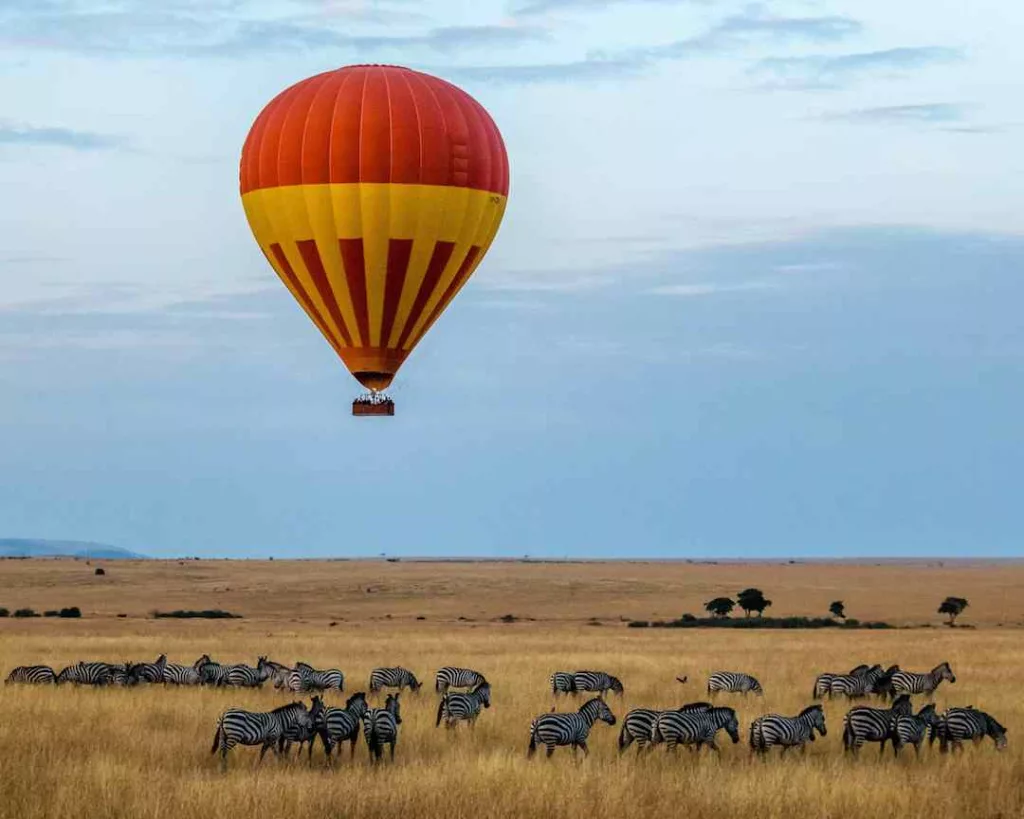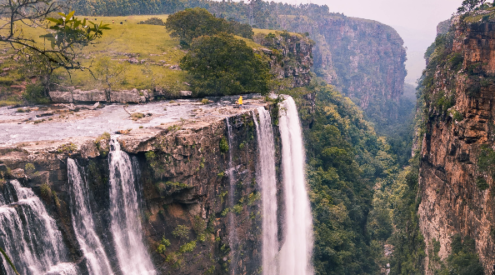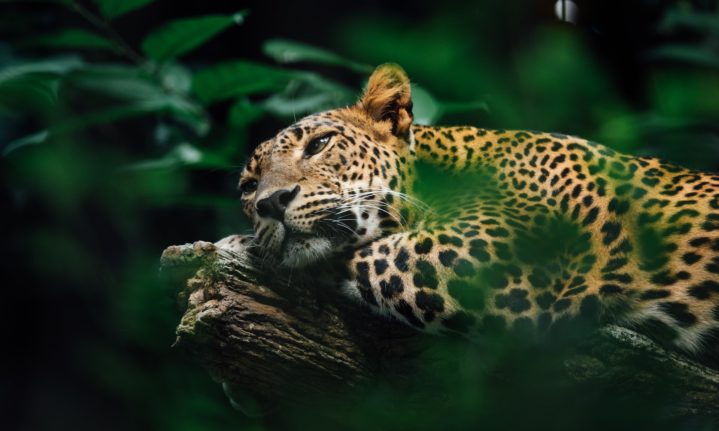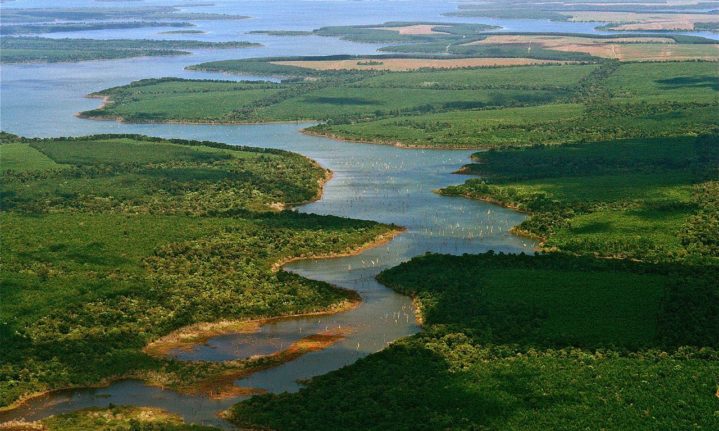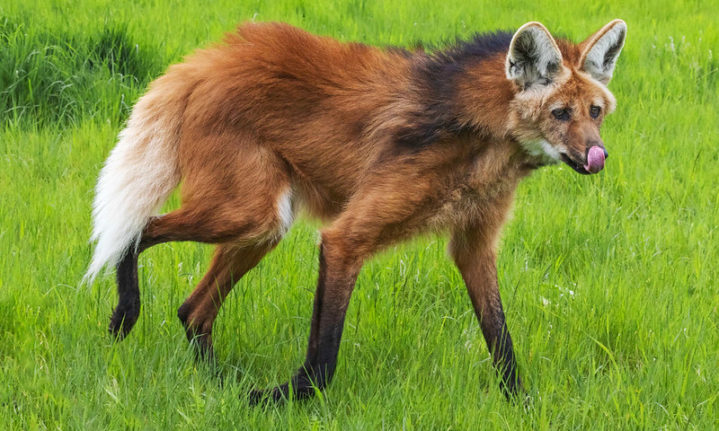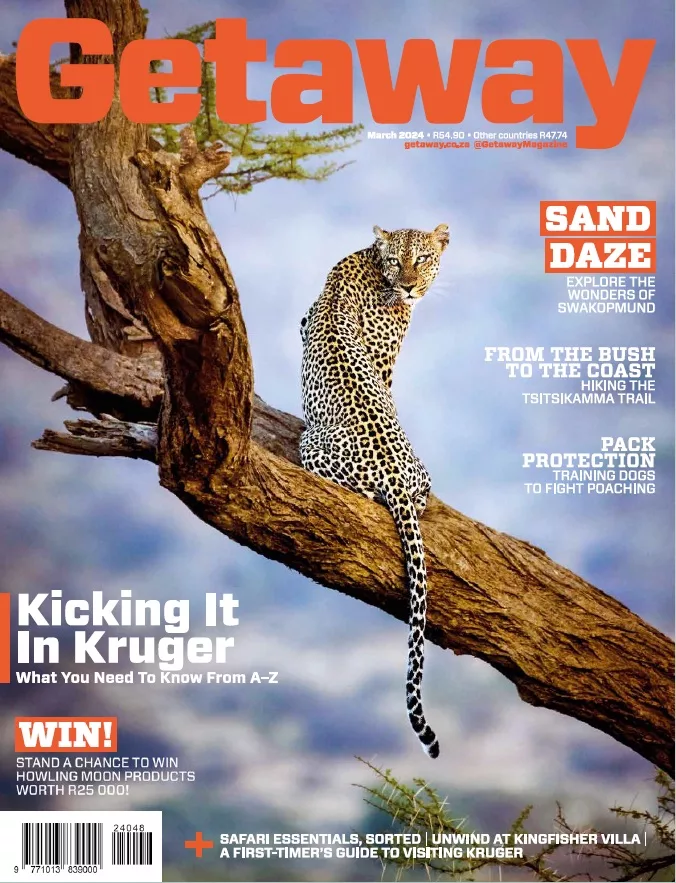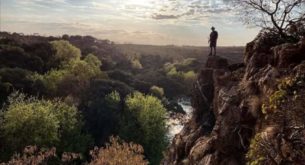A foundation that turns private land into national parks in Argentina is reintroducing native species back into the wild. The project has seen the return of jaguars to the Iberá wetlands for the first time in 70 years and the macaw for the first time since the 1800s.
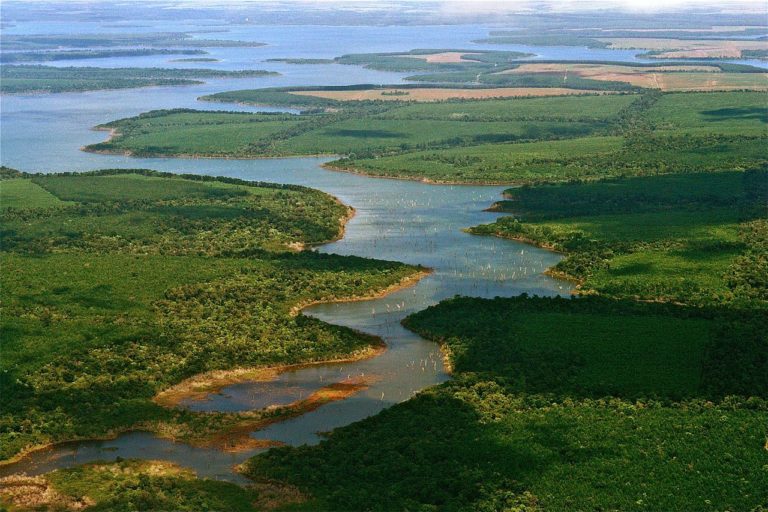
Ibera Wetlands. Picture: Wikimedia Commons/ Evelyn Proimos
Fundación Rewilding Argentina was created to ‘confront and reverse the crisis of species extinction and the resulting environmental degradation,’ their website reads, where it aims ‘to restore the healthy functioning of ecosystems and to promote the well-being of local communities’.
Founded in 1998 by Argentinian conservationists and activists to reverse the terrible loss of native species in Argentina, the star of the rewilding organisation’s project has been the Great Iberá Park, situated in the northeast corner of the country near the borders of Paraguay and Brazil.

The coypus, a large semi-aquatic rodent swims through the wetland after going regionally extinct in the region. Picture: Flickr Commons/ Ministerio de Cultura de la Nación
At the centre of its park is a wetland area that consists of distinct environments such as Paraná forest, the Chaco woodlands and open grasslands.
Habitat loss due to the expansive cattle farming on top of hunting and wildlife trafficking has caused multiple species extinctions in the region where the jaguar, giant anteater, red and green macaw and the giant otter went regionally extinct.
Rewilding
In December 2018 a one-year-old female jaguar, Mariuá, set foot into their breeding centre and two years later, she walked out with two cubs.
When Mariuá and her two cubs walked into the protected area, the first jaguars to roam the land for more than 70 years, it had been expanded to 1.4 million hectares after negotiations with neighbouring cattle farms to donate the land to nature conservation and bring nature-based tourism into the region.
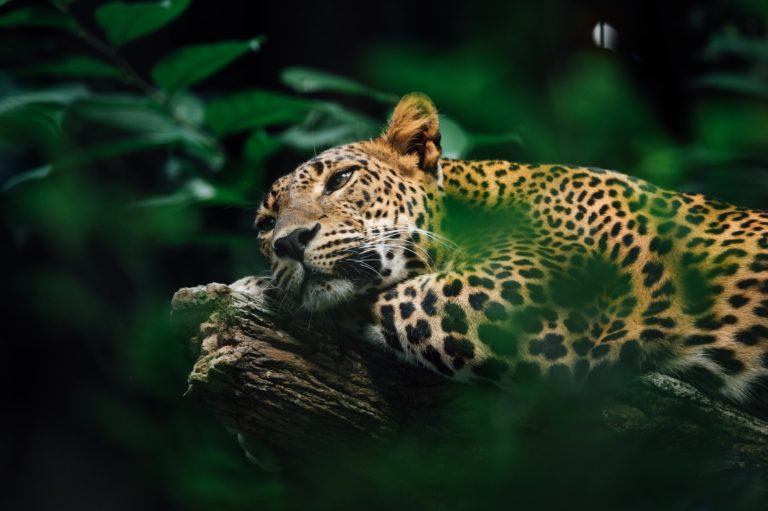
Jaguars have been reintroduced to the wetlands after being regionally extinct for more than 70 years. Picture: Unsplash
Fundación Rewilding Argentina is beginning to reverse the process of regional extinctions that many. Their goal is to reintroduce a total of 20 jaguars by 2027, along with multiple other iconic species.
The reason for reintroducing such an iconic species was not only to bring in eco-tourists but to restore ecosystem functionality after keystone species were removed from the area.
So far the project has successfully reintroduced regionally extinct species such as the pampas deer, giant anteaters, collared peccaries (a pig-like animal), coypus (large aquatic rodents) and red and green macaws.

The maned wolf is also one of the species that returned to the wetland. Picture: Wikimedia Commons/ Ian Duffield
The giant otter and macaws were extinct in the Argentian wild, but work is being done to bring them back. Two pairs of otters were obtained from European zoos and after several attempts, one pair managed to breed successfully, producing the first litter born in the country in more than 30 years.
Red and green macaws have been successfully reintroduced after their reintroduction programme started in 2016. For the first time since the late 1800s, they now occur in the wild of the Iberá wetlands

Macaws have been successfully reintroduced to the wetlands for the first time since the late 1800s. Picture: Flickr Commons/ Rodrigo Soldon Souza.
Due to the endangered status of many of the species and the lucrative market for them, sourcing wild populations has proven difficult, and in some cases impossible.
The organisation has therefore resorted to habituated captive species. Even though this has its concerns regarding introduced diseases, they are taking all precautions to ensure the animals are well habituated to the wild, stating that ‘we think it is preferable to assume the uncertainties in trying to restore ecosystems, rather than accepting their degraded state.’
What’s next
The project forms part of the UN’s Decade on Ecosystem Restoration launched in 2021, which calls for large-scale restoration efforts.
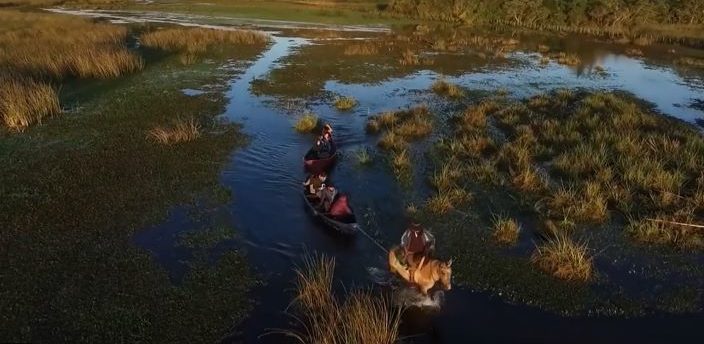
Picture: Wikimedia Commons/ Evelyn Proimos
Fundación Rewilding Argentina has also launched other projects throughout Argentina in Patagonia, the Argentine sea, and El Impenetrable National Park in the north of the country.
They hope to use nature-based tourism to involve the surrounding communities, where estimates predict that tourism in the Iberá wetland can generate annual revenue of $6.8 million, three times that obtained from cattle ranching in the region.
Learn more in the video below.
ALSO READ



